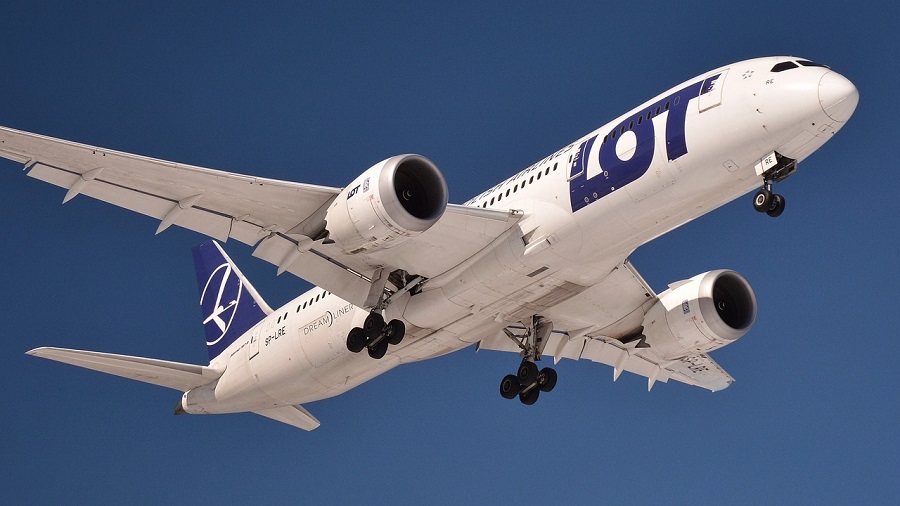In the heart of Poland, in the Baranów municipality, a project is being born that aims to revolutionize communication in the country and make Poland a communication hub in the region. The Solidarity Transport Hub (STH) is an investment that aims to combine various means of transport in one place, offering modern and efficient connections. Here is a closer look at the history and plans of this ambitious initiative.

Genesis of the CPK Construction Idea
The idea of building the CPK, which stemmed from the need to modernize and expand transport infrastructure in Poland, has gained momentum in recent years. This initiative, aimed at creating a modern communication hub, gained government support in 2017. The choice of location in the Baranów municipality was not accidental – analyses indicated the strategic importance of this place, providing excellent rail and road connections. This project is seen as an opportunity to accelerate the country’s economic development, attracting investments and creating new job opportunities.
The vision of the CPK is ambitious and encompasses not only the construction of an airport but also the expansion of railway and road infrastructure. This combination of various means of transport in one place aims to create a modern, efficient, and integrated communication system that will serve not only Poland but also the entire region.
Critics, however, point to potential problems, including environmental and social issues, that may arise from the implementation of such a large-scale project. Nevertheless, the government is determined to see the project through, believing in its long-term benefits for the country.
Assumptions and Planned Scale of Investment
The planned scale of investment in the CPK is impressive. The project envisages the construction of a new airport capable of handling up to 100 million passengers annually, making it one of the largest in Europe. In addition, investments in railway and road infrastructure are also planned to ensure smooth access to the port.
The project’s assumptions are based on analyses and studies conducted in previous years, indicating a growing demand for air transport in Poland. The government plans for the CPK to become a key communication center, connecting different regions of the country and offering fast connections to the rest of Europe.
However, the project is not without criticism. Some experts point to the lack of a full business justification, including a detailed schedule and benefit estimates. Moreover, there are concerns that costs may exceed initial estimates, which could affect the profitability of the entire venture.
Criticism and Controversies Surrounding the CPK
The CPK project is not without controversy. Since the announcement of construction plans, this initiative has met with criticism from both experts and local communities. Some point to potential negative environmental impacts, including threats to local ecosystems and air pollution.
Other critics point to the project’s costs, arguing that the funds could be better used for other initiatives that would bring greater benefits to local communities. There are also concerns that the project may lead to displacements and affect the lives of the region’s inhabitants.
However, the government defends the project, arguing that the CPK will bring significant economic benefits, including new job opportunities and attracting investments. Moreover, the authorities emphasize that the project has been designed to minimize negative impacts on the environment and local communities.
Current State of Construction Works
At present, the CPK project is in full bloom, although not without certain delays. Construction works are intense, and the area of the future port is already well outlined. However, the CPK implementation schedule was so far general, causing some stages of the project implementation to experience significant delays. Critics point to the lack of specific deadlines for various tasks, which might suggest potential future delays.
Despite this, the government team responsible for the CPK project is relentless in efforts to maintain the pace of work and minimize delays. Many experts from the construction industry are involved in the project to ensure that all aspects are implemented according to the highest standards. Moreover, the authorities emphasize that the full material and financial schedule of the CPK Program will be presented shortly, aiming to increase transparency and trust in the project.
However, despite certain obstacles, progress is visible on many fronts. Road and rail infrastructure is gradually being expanded, and work on the main airport facilities is already advanced. The government hopes that these advances will continue, making the CPK a reality within the planned timeframe.
CPK Development Plans
As part of further development, CPK sp. z o.o. has developed a detailed business plan, which foresees significant investments in infrastructure. According to plans, the airport is expected to reach a level of 24.3 million passengers annually by 2030, which is critical for achieving profitability. Additionally, investments in railway and road infrastructure are planned to ensure smooth access to the port.
The government also has ambitious plans for the further development of the CPK as a logistics and transport center. In addition to expanding airport infrastructure, investments in modern technologies are also planned to increase the efficiency and safety of airport operations. Moreover, the government plans to cooperate with international partners to make the CPK a communication hub of global significance.
However, despite ambitious plans, the CPK project is not without challenges. To succeed, it will require significant financial investments, as well as a coordinated approach to management and implementation. Nevertheless, the government is determined to see the project through, believing in its potential to transform Poland into a modern communication hub.
Article in Polish: Centralny Port Komunikacyjny: Historia i plany CPK.
